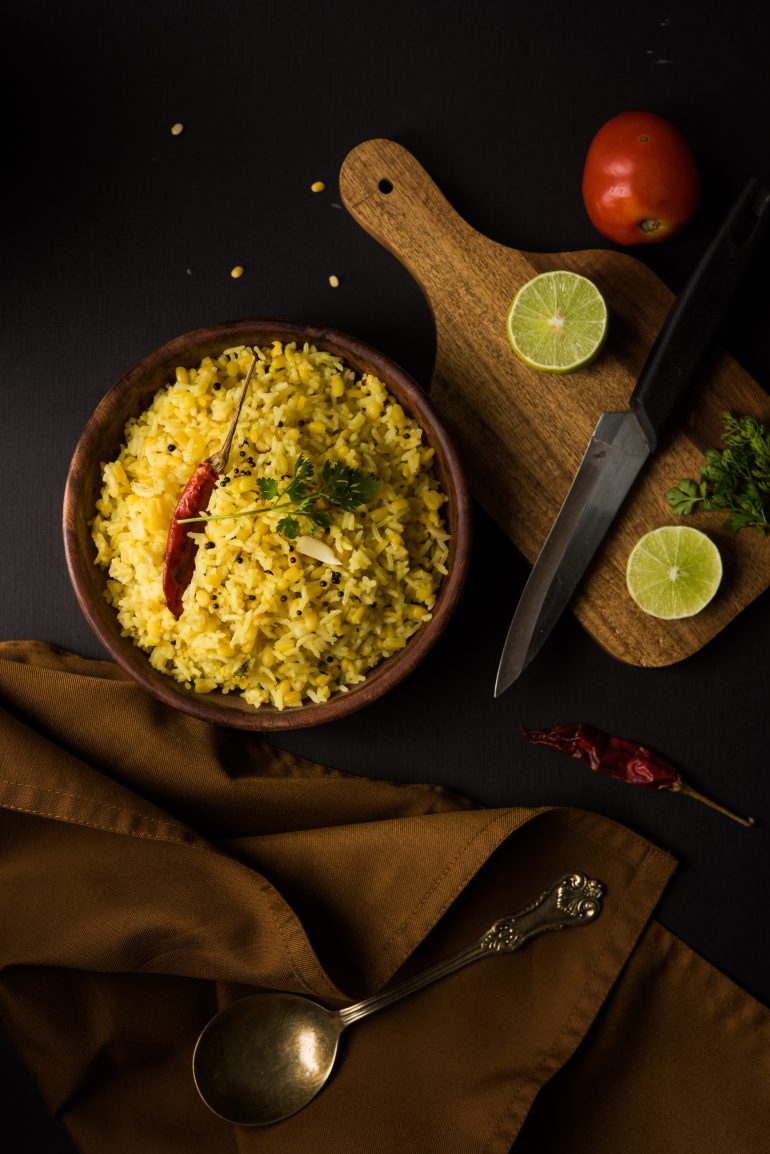Ayurveda supports the idea of seasonal cleansing, particularly in the Spring and Autumn seasons. Mono diets are a popular choice in Ayurveda, particularly a mono-diet or kitchari.
Kitchari is light to digest and nourishing when we eat heavy foods and different combinations of food, our digestion has to work harder.
When we eat the same type of food for every meal, our digestive fire become attuned to digesting the same thing. A mono diet enables our digestive fire or “Agni” to use its strength to digest unwanted toxins in the body.
A traditional Ayurvedic cleanse ( Pancha Karma) is done for more extended periods. Still, a gentle 3-day reset can work wonders for the body revitalising and nourishing at the same time, resulting in more energy and clarity, better digestion and in some cases, weight loss.
The Prep
It’s a good idea to start cutting out caffeinated tea, coffee and refined sugars a few days before the cleanse. This way, it is not a complete shock to the system when you start the cleanse and feel fewer withdrawals.
Think about starting the cleanse at a time when you have some days off. You may need extra rest or sleep the first day or two as toxins are eliminated, and your body adjusts.
Get used to drinking warm water over cold or iced drinks.
Stock up on your favourite herbal tea. We recommend a simple blend of coriander, cumin and fennel tea. It ignites digestive fire and helps to burn toxins. You can make a batch of equal parts of each seed.
1 part cumin
1 part coriander seed
1 part fennel seed
For one cup or serving, add 1 TSP of the blend to boiling water. It is that simple.
You can also make a cold infusion by adding 1 TSP of the blend per cup of cold water and let steep overnight and warm up as needed.
However, if you get bored with CCF choose your favourite herbal tea to add into the mix.
Shoping list
Split mung dal
White Basmati rice
One onion or one leek
Fennel seeds
Cumin seeds
Coriander seeds
Ground coriander (or simply grind the seeds in an electric grinder)
Ground turmeric
Fresh ginger root
3 limes
Ghee or sunflower oil
mustard seeds
Fresh coriander
Kombu seaweed
Hing /Asafoetida
mineral salt
Apples and or pears
Cloves
cardamom
Cinnamon
Seasonal vegetables preferably organic
The Cleanse

Get Your Kitcheri recipe
for your 3 Day Reset
Breakfast – 7-8.30 am
Simple kitchari – Use the same kitchari recipe below but omit the onion and the roasted veggies.
If kitchari feels too heavy to have for breakfast opt for a simple dish like boiled apple or pear. Simply cut the fruit into quarters, take out the core and boil with a pinch of cloves, a pinch of cardamom seeds and a ¼ stick of cinnamon. Boil until soft. Strain the fruit and eat warm.
Lunch – 11.30am – 1pm
kitchari and roasted veggies
Dinner 5pm – 6.30pm
kitchari and roasted veggies
If you get hungry between meals
It’s always best to leave at least 4 hours between your meals. Snacking or eating between meals only confuses the digestive clock and can cause toxins in the system. However, this cleanse is not meant to starve you.
If you feel hungry between meals, make sure you are actually hungry, sometimes boredom, and emotions can make us want to eat.
Stay hydrated Make sure you are drinking enough warm water and herbal tea throughout the day.
Eat a small portion of cooked veggies to tied you over or eat a small portion (½ cup) of kitchari.
Post Cleanse care
This cleanse should help you feel nourished, lighter, more focused and reset your digestion for the coming months. It is important to gently reintroduce foods slowly back into your meals so that you do not overload your digestive fire too quickly.
After your cleanse on day four it’s best to try and stick to vegetarian foods and like soups, and lentil dishes for your dosha. You can start to incorporate a little dairy on day 5 – warm milk at bedtime with warming spices like cardamom, cinnamon or nutmeg and or warming porridge in the morning with a little milk and spices to aid digestion. Keep portions to the same amount as two cupped hands and if you eat meat it’s better to slowly introduce it on day 6 or 7 in small amounts. Always take note on how you feel after introducing new foods back into your diet. If there is discomfort, low energy or gas after eating certain foods, this may be a sign that these foods are more difficult to digest and should be kept to a minimum.
Note: Articles on Inner Farmacy are solely to share the knowledge of Ayurveda and bring awareness to natural healing and holistic living. Please do not substitute this information for professional medical advice. Ingredients discussed can interfere with certain medications. So, before using anything to treat yourself, always consult a doctor or health practitioner.




